
Turning ALS Diagnosis Into an ALS Fight for the Whole World
Meet Sandra Abrevaya, of Turkish origin, born and raised in USA, a successful public servant, who met her soulmate Brian Wallach while both were working for Obama during his triumphant campaign for the 2008 US Presidential Election. The couple later exchanged marriage vows in Bodrum followed by a party that ended with all their guests jumping in the sea. They had two beautiful daughters, one of them a new born, to complete the perfect picture. But then the devastating news arrived the day they were leaving the hospital with their baby. Brian was diagnosed with ALS. It was terminal. Yet this ´power couple´ decided to take action and became champions for all ALS patients in the USA. Thanks to them there is now hope for cure all around the world.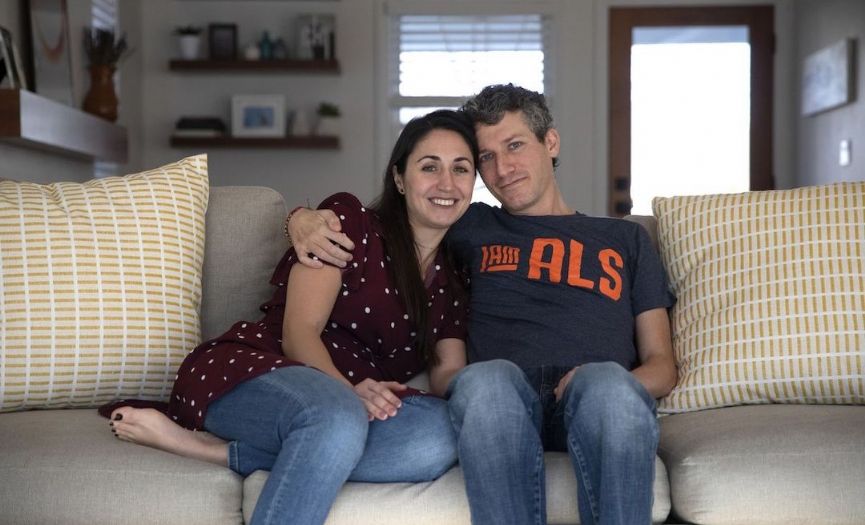
First of all, I would like to introduce you to our readers. Can you tell us a little about your family history?
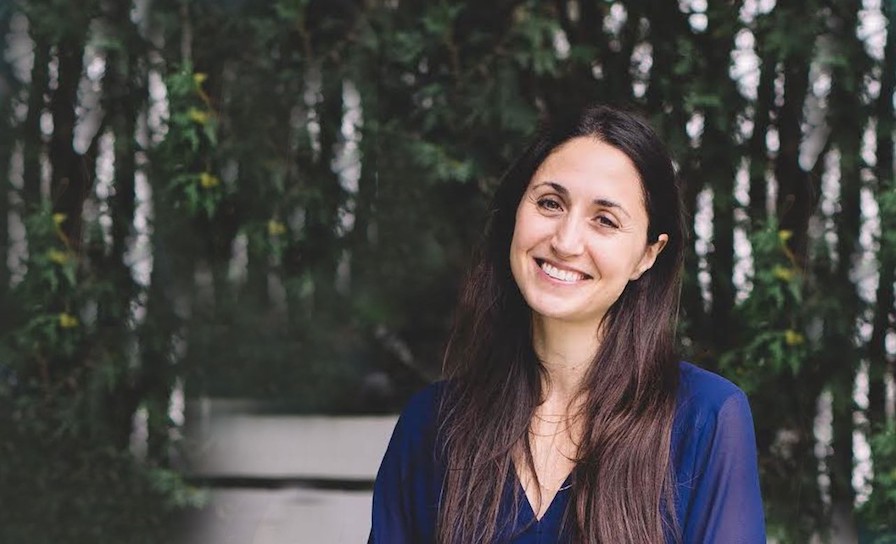
I was born in New Haven, Connecticut because that is where my parents moved from Turkey to study. They thought it would be temporary when they left Istanbul. My dad, Hayim got accepted to the chemical engineering PhD programme at Yale in New Haven. My mom Klara was a molecular biologist. She now has a very senior role in Abbot Molecular. We used to visit Turkey every summer because both my ‘anneanne’ and ‘babaanne’ lived in Istanbul and so did all my parent’s other relatives and friends. I remember one summer we spent a longer period in Turkey. I was 9 years old and that was when I learned Turkish by playing ‘saklambaç’ and going to the ‘bakkal’ every day and eating sunflower seeds. We were in Suadiye in the early years and then I remember being on the horse carriage going on the paths of Buyukada to the top. Also, I spent a lot of time in Burgaz with my uncle Yusuf and his wife Magi and my cousin Vedia. As a kid I was a little bit jealous of Turkish kids because we, in the USA, didn’t have this lifestyle. I used to wish that I grew up in Turkey. When I was a teenager, I started to go to Bodrum to my Aunt Elda’s house where I had my first night club experience in Halikarnas Disco. I think that all my coming-of-age experiences happened in Turkey; adventures, joy, freedom and friendship. Even though I didn’t have a vision for my wedding, I always had a vision for sharing Turkey with my friends. When my wedding became an opportunity to invite my friends to come to Turkey that felt so special to me because it wasn’t about the party, but the joy of sharing this incredible country with my friends.
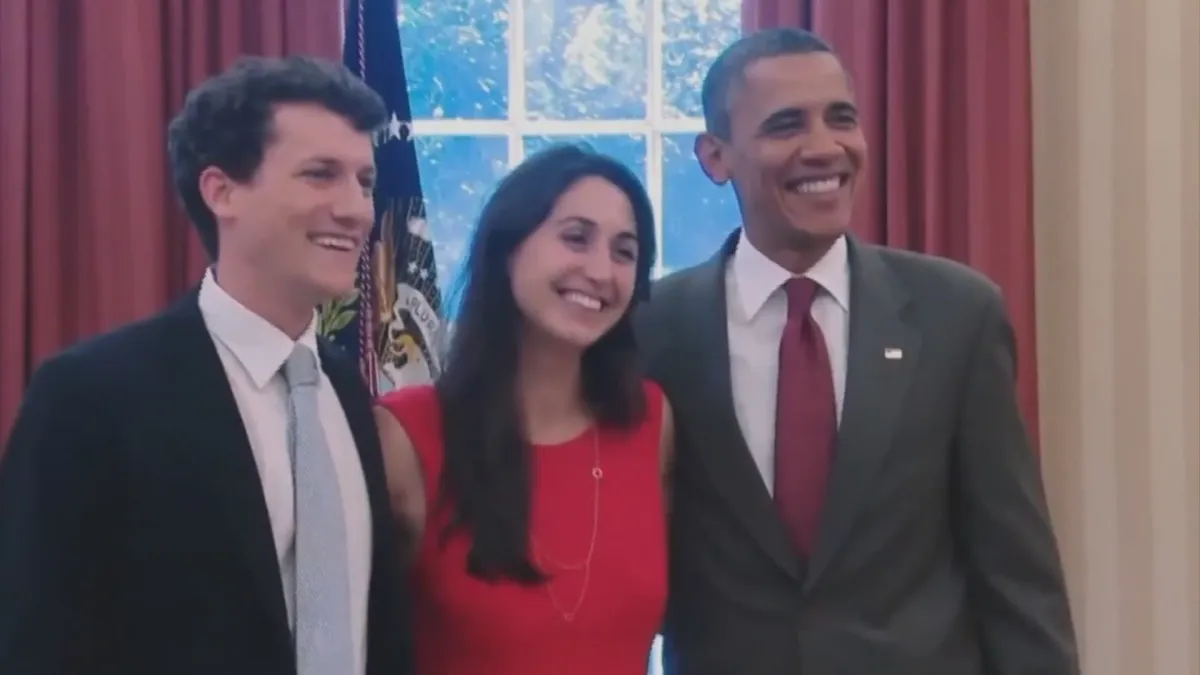
Could you tell us how you met with Brian and about your life together?
We met in 2008, in New Hampshire. It was President Obama’s first run for office for President. I was the communications director for the State of New Hampshire and Brian was the political director. It was our job to work together. It had been a few months before we started dating. We won the election. It was so exciting. Then I asked Brian casually, ‘You know it is my grandpa’s 90th birthday in Istanbul. Would you like to come?’. I didn’t expect he was going to say yes. It was not a serious relationship, yet. He didn’t hesitate for a second. I was shocked. So, I had to warn him that when we arrive in Turkey everybody is going to think that the fact that he is coming to Istanbul means that we are getting married. I made him promise not to get freaked out. Brian says yes to everything. His all childhood and DNA is about global travel because his grandfather was an ambassador. It was a no brainer for Brian to come to Turkey. The night we arrived at the door of my aunt’s house in Suadiye, the first thing my grandfather said “dedin ki yakışıklı ama bu kadar yakışıklı inanamadım, prens gibi Sandra- you said he was good looking but I cannot believe he was this good looking- he is like a prince.” Brian was curious, but I didn’t translate that to him, of course. We dated for four years. In the meantime, we have been to Turkey several times and we had this ‘How many things can Brian try?’ game with Yusuf as our culture and food tour guide. We challenged Brian with ‘işkembe-stomach soup’ and even ‘kokoreç-intestines’ both of which he managed to try. We also had a summer vacation in Bodrum and enjoyed the Bodrum of my childhood. So, I laid the groundwork for our wedding in Bodrum. Then we had a daughter and two years later another new born daughter. We just came back from the hospital and sadly we got the ALS diagnosis for Brian.
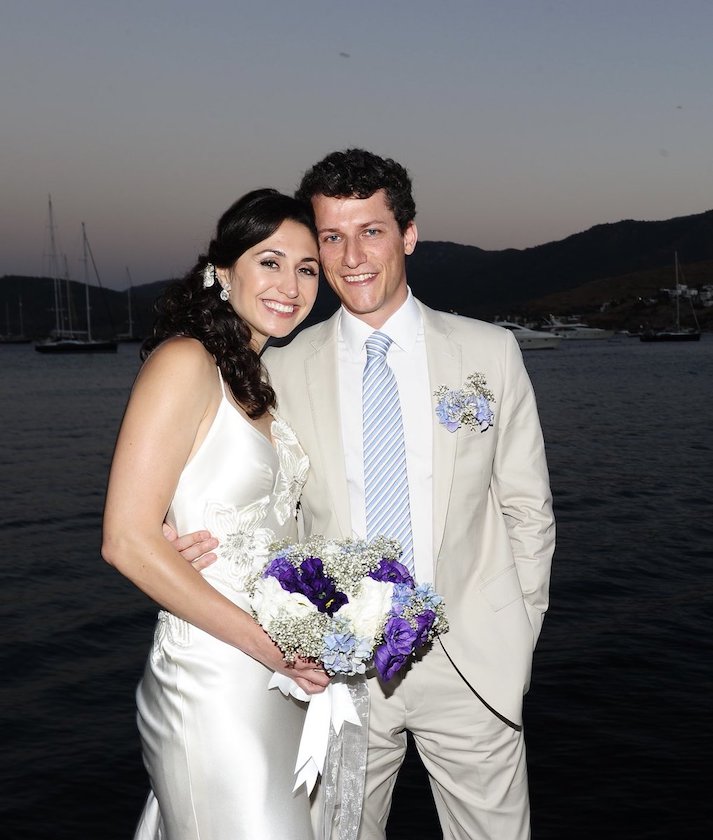
How did you get that diagnosis?
Brian was coughing a lot at the hospital and at one point he mentioned his left hand was weaker and cramping. I didn’t worry about it because I thought it was exercise related. He ended up going to the doctor quickly because of the cough. When you go to a doctor, you talk about everything that happened recently and so the doctor wasn’t worried about the cough but asked more questions about Brian’s left hand. Then the doctor noticed the tremors. He got worried and he made a second appointment with a neurologist right away. The day I was bringing my baby home from the hospital, he went to his follow-up appointment. I called him on the phone because I was annoyed at him for not telling me ahead that some guy was coming to the house to repair something. But he was quiet on the other end of the line. I asked if everything was okay, but he said no. Brian Wallach never says things are not okay. He is so resilient and positive, so at that moment my heart dropped. He drove home. My daughters were asleep and I was pacing back and forth in the living room. He pulled up the car upfront and I ran out to the car. Brian said the doctor is pretty sure that he has ALS. But what is ALS? I remember ice bucket challenge. Okay, there must be a lot of progress because of that challenge. And I said that’s not so bad. I remember feeling better for some reason. I had the wrong intuition. Brian said actually it is really bad. He said that he could have 6 months left. Then everything fell apart.
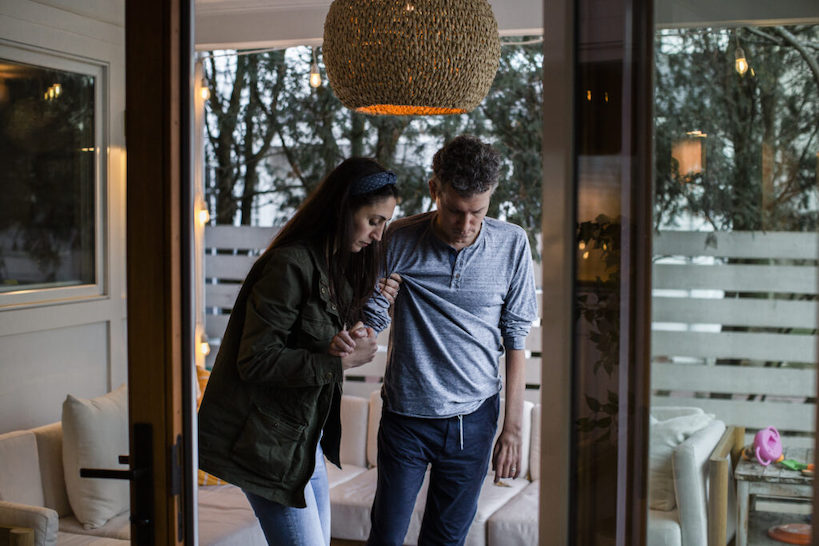
How did you start your fight with ALS after you processed the shock?
Brian and I had the best ALS care because my parents happen to be two brilliant scientists. Think about it: someone with ALS just happens to have their in-laws be able to travel to every international ALS conference across the globe, to find out the best research, to use all their connections to arrange doctors’ appointments in the best clinics, to have the financial ability to see multiple doctors, to think about the best for their son in-law whom my parents adore so much. They call Brian their son. When my grandpa was passing away in the hospital room, he asked me ‘Are you going to marry Brian?’ Our family loves Brian so deeply. So, in addition to my parent’s scientific background, my 8-year younger sister happens to be a data analyst. Once she was looking at the data of a paper and she said ‘‘This promising therapy is actually a combination of two drugs that are currently accessible today and it looks like we can get prescribed for one of them’’. My family is fighting for him so hard. Wow, what a privilege we have. And how awful that other patients don’t have that.
Are you familiar with Dr. Hande Ozdinler from Northwestern University? In a TV show by Fatih Altaylı she was referred as ‘the doctor who revived dead cells’.
Actually, she is one of our doctor’s friends at Northwestern. Dr. Hande has a crucial part in our life. She texts my parents, Brian and me.
I don’t believe we have much ALS awareness around us. We have come across with the word ALS with the famous Ice bucket Challenge in 2014, but I am doubtful people knew why they were pouring down the iced water on themselves. Plus, everybody knows late Stephen Hawking who was in a wheelchair talking via computer but was able to do some serious physics. What is ALS?
ALS is a motor neuron disease. It is a progressive neurogenerative disease that is currently 100 percent terminal. It is the worst diagnosis for any degenerative neuron diseases such as Parkinson’s, Alzheimer’s, or MS, because the life expectancy after you are diagnosed is between 2 to 5 years. And only 10 percent of people lived beyond 5 years. There are no survivors. Even in stage 4 pancreatic cancer, you still have a one percent chance of surviving. In ALS it is zero.
Why can’t we find a cure?
Just like with any complicated problem, you have to put a lot of time, attention and resources to ALS. The ice bucket fundraiser was the first time that globally we have given the resources and needs which a lot of good research and discoveries have come out of. We better understand the disease now and how to deal with it. But for so many decades there was no real investment. After ice bucket, there wasn’t another viral moment. So, when Brian and I entered the scene after incredible grief and shock, we thought the ice bucket raising a 100 million dollars through a social media campaign is one thing, but if you do it the right way, you can approach the federal government for a 100 million dollars every year. And that’s what we did.
Is there a promising treatment right now?
There is a lot of reason to be hopeful. The genetic sub-types of ALS are the ones that are likely going to be the first that we find meaningful treatments for. There is really incredible progress in treatments that are in clinical trials now for individuals who have SOD1 (a specific genetic type of ALS). Brian and I are very much plugged into the research community, so there is another very exciting treatment coming for C9 (another genetic type of ALS) patients. The work is actually done by Bob Brown, who was an advisor in Suna-İnan Kıraç Foundation. He spent quite a lot of time in Istanbul collaborating with Koç family.
Why does finding a cure for ALS also imply finding a cure for all neuro-degenerative disorders?
The bad news about ALS for patients is that it progresses quickly, and people die. The good news is for science, so you can understand whether the drug is working or not quickly. So, when you use ALS example, you can learn faster. A lot of the underlying mechanisms that are at play in ALS are happening in other sister neurological diseases. For example, dementia, in particular, has a lot of overlap with ALS. One of the genes that causes ALS for some people with C9 are also present in many patients with frontal temporal dementia (FTD). There are also direct links between types of Parkinson’s and ALS. So, the underlying science of these diseases is interconnected. Given the rapid pace at which ALS moves both in humans and in the lab, this allows us to learn things more quickly. Out of a failed ALS trial came a drug for SMA. The SMA drug is a miracle drug. It was a hopeless disease and now there is a drug to stop it, although we need to find a way to address the cost of the drug.
How did your fight with ALS turn into a fight for all ALS community?
Brian and I, we met in public service. It is who we are. In a situation like this, there is not a lot to feel good about. Something we knew that make us feel good was to be of service and to make a difference. So, we co-founded ‘I am ALS’ organization, in 2019 January. Some people when given a terminal diagnosis go on vacation. For Brian and I, it is public service. We also feel like the science really is on the cusp of a very big breakthrough. Therefore, we fight for the hope that it could also help Brian. It is not just an investment for 10 years down the road. We wake up every morning with the hope that we could also help Brian.
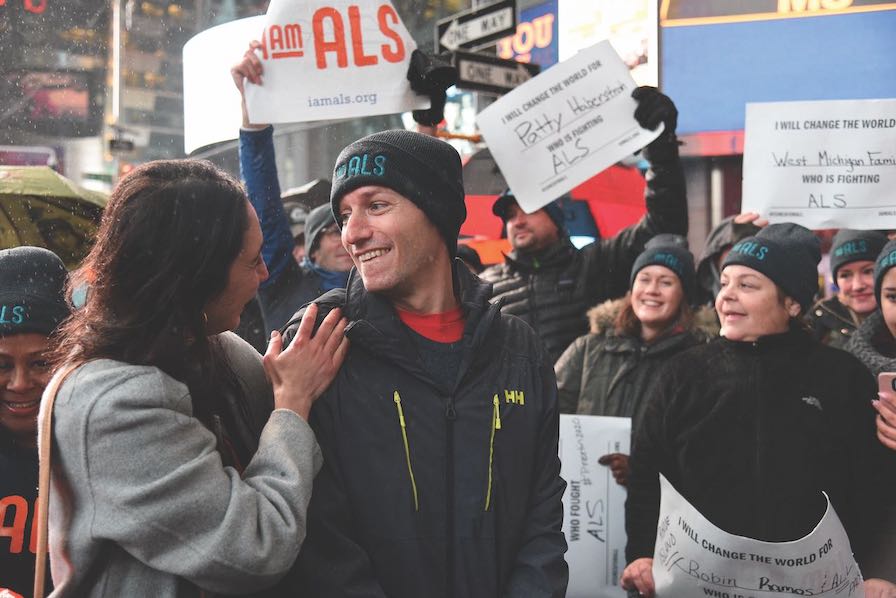
What is the ultimate goal of ‘I am ALS’?
With ‘I am ALS’ organization we want to change the narrative about this disease. It used to be hopeless. It is not hopeless anymore, so we are asking the public to be a part of this fight with us because we are going to cure ALS. And whether we do it in 20 years or 3 years is going to be dependent on how many people come and join us and how fast we can move.
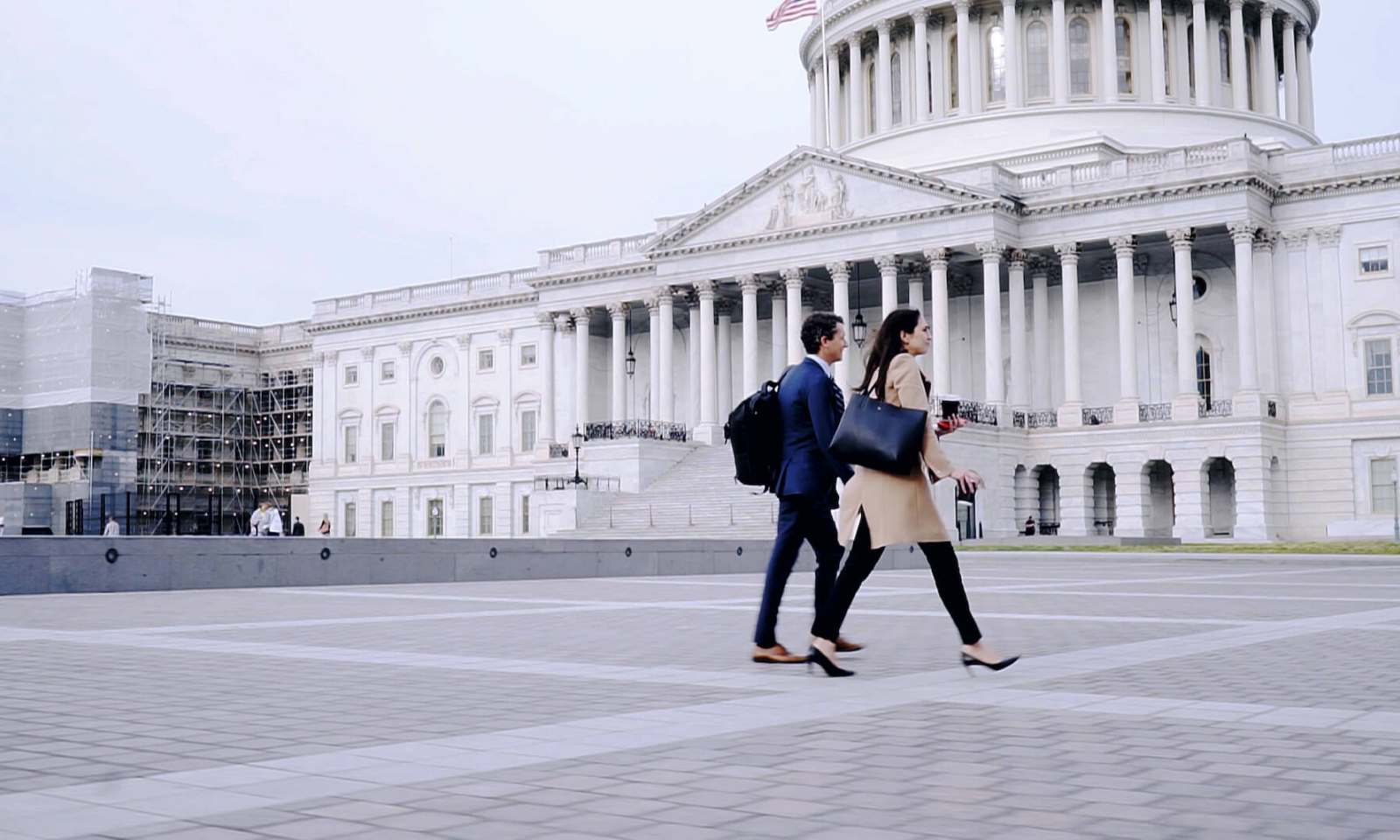
What are the achievements of ‘I am ALS’ organization?
Our first priority was to increase the federal funding for ALS because it had basically flatlined for decades. We knew how to work with government and how to organize patients and caregivers to support a bigger movement for change so, we leveraged our own skill set, we empowered the patient community and together that resulted in more than 50 million dollars increase in federal funding in the first couple of years of the movement’s existence. For the last year and a half, we focused on an act on ALS which Brian wrote the legislation with members of Congress himself and came up with the idea for. That legislation is really focused on how to get promising drugs, that are not yet FDA approved, but are in Phase III of the clinical trial, to patients. How do you get them access? Because some of those really promising drugs that could save people’s life or extend their lives significantly have arrived. However, they are in the process and if we want to be the first generation to survive ALS, we have to find avenues to make those drugs available now or else we will all die, and only the next generation will benefit from it. So, Brian and the patient community and bipartisan legislators- which is an incredible show of force in this current political climate where things are hard to get done- all came together and said they are going to fight for the lives of people living with ALS, today. That’s what this bill is about. The bill authorizes 100 million dollars to fund the program and make these drugs accessible that are in Phase III trials. Also, this law establishes that expanded access is given to patients who were not eligible for trials before, because they were too far into the disease, like patients having symptoms for more than 2 years.
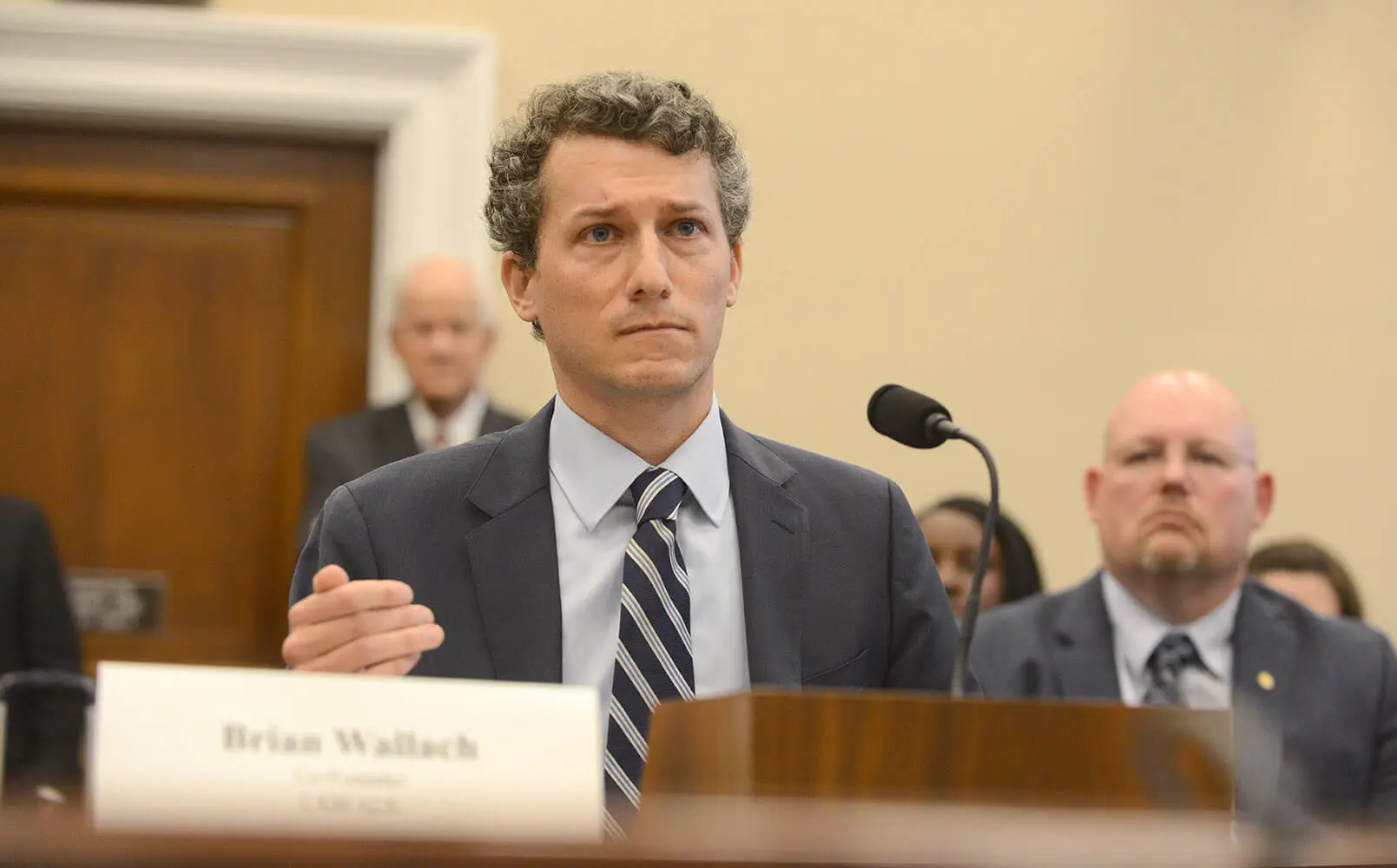
Can you talk a bit about the company Synapticure you just launched recently? What is its mission and strategy?
Like we weren’t busy enough, we decided to found a health-tech company. I am impressed, surprised and so proud of everything ‘I am ALS’ has accomplished and is continuing to do. But there are problems in the ALS sector that a non-profit advocacy organization doesn’t have the ability to address. Some of those problems are very firmly rooted in the medical care industry. About half of ALS patients never see an ALS specialist. Even though the data shows that if you are taken care of by an ALS clinic, it can add months on your life, so many individuals are not getting access to care. This is because of a variety of reasons, in part because people are living across the country, and these ALS clinic centers are only in specific places and there are not a lot of them and also there is no global education about how important it is to be seen by an ALS specialist. That is a huge problem because this is like saying 50 percent of cancer patients never see an oncologist. And then, even when patients do see specialists, the science has advanced so much in the last 5 years in particular, that some of the very top clinics cannot keep up with the science. We need to really make people aware of all the best options. Not all the clinics have all the resources and the abilities and the links to the research and so we thought to create a healthcare company that is essentially a group of doctors and nurses that give everybody access to the best care. How do we do that? We set up a tele-health company where you can see a doctor virtually wherever you live, where we can send genetic testing kits to your home, give you genetic counseling online and have you meet with the best specialist to give you advice on clinical trials that you might be a good fit for. This is just the beginning. We make the care more accessible, better and easier.
In Turkey they say that it is a disease for the rich only.
Yes, exactly. Brian and I want to democratize care. You should get the best ALS care no matter how much money you make, no matter where you live, no matter who you know. Those should not be the deciders.
Can patients from Turkey benefit from Synapticure?
Hopefully, in the near future, we are planning to expand. Currently, we want to make it right in USA. Tele-health can work globally, too. It should make a difference globally for those who do not have access to care.
You have countless appearances on newspapers, TV shows, motivational talks, zoom meetings... And you agreed to do this interview with Şalom. I cannot thank you enough for your precious time in your super busy schedule. How do you manage to take care of your husband, run a non-profit organization and a company and be a mom, all at the same time?
It was very challenging during the pandemic because we were so afraid for Brian’s health, to have support in the house. So, there were periods of time when I was alone at the house caring for Brian and the children and working for the non-profit and the company. It was unsustainable. What I told myself is that it was temporary. As the vaccines and the testing kits started to come, we found ways to bring childcare back into the home and a caregiver for Brian as well. We got a great CEO for the non-profit. We work seven days a week. We also moved a block down my parents to suburban Chicago from the city center when we were diagnosed.
What would you recommend to ALS patients and caregivers?
First get genetic testing as soon as you can because some of the promising drugs are helping to slow or even stop ALS. The faster you get tested, the faster you can find out if there is actually a therapy that can help you. The second thing is that people would want to help. Ask people around you to fund caregiving. Even Brian and I ask people for help. We can’t financially handle the cost of care giving support. We are not embarrassed; we are not ashamed. Just say you don’t have enough resources to pay for this and if people want to help, they can help you pay for the care.
Is there anything we can do to help?

Sandra Abrevaya & Selin Kandiyoti
There is a take action button at the website of ‘I am ALS’. There are a lot of options. You might be interested in community organizing or helping ALS patients with caregiving, with mentor support, and all this can be done virtually. International ALS patients come together online to strategize together and share what is breaking through in different parts of the world to help one another. The global community can be and is engaged in our organization.
We have a small ALS organization in Turkey, but even their ‘send SMS for 10 Lira’ contribution button is not working. I hope this interview can make even a small change in terms of ALS awareness.
This is why doing interviews is an important part of the fight. People, who have come in to help either to fund the work or make special connections or create special opportunities through reading about it in newspapers or watching TV segments, are incredible. The general awareness raises because of interviews like this. This is making a huge difference. ‘I am ALS’ is amazing in this way because we helped people understand that their individual action of going to the website and clicking on the action button is actually making a difference. We made them see they can drive change. We are very efficient. ‘I am ALS’ got almost a 2 million dollar funding and in return it has generated 150 million dollars for ALS, each year. It is incredible. We drove the change.
Related News









